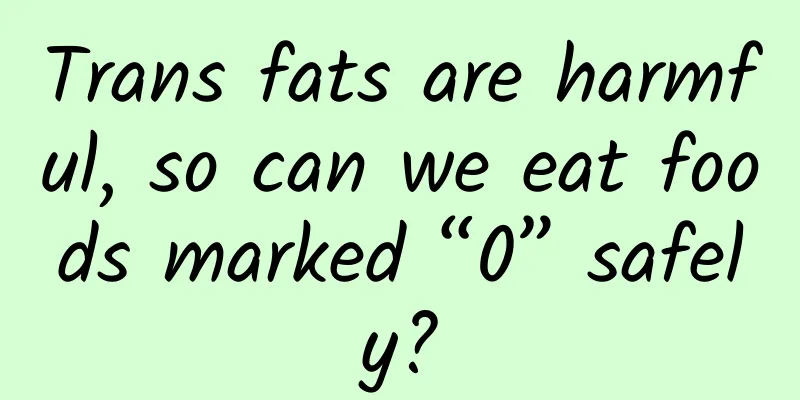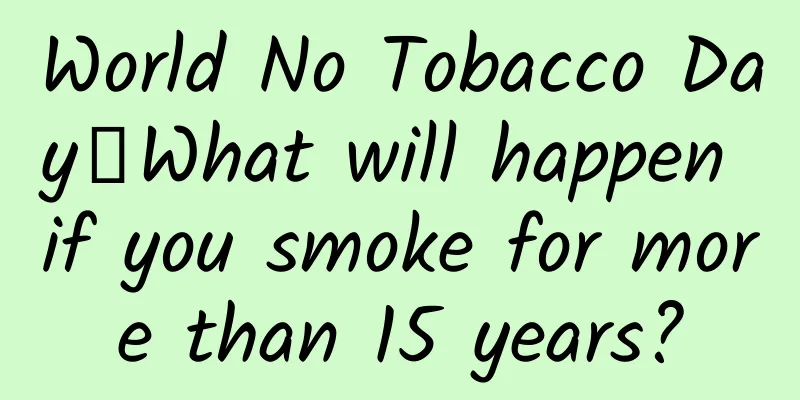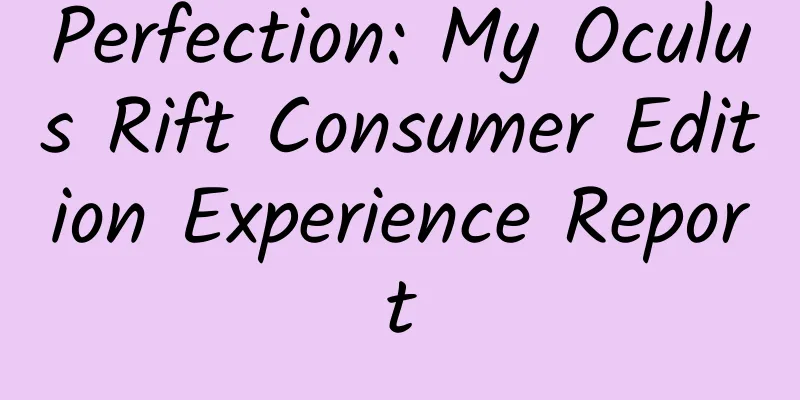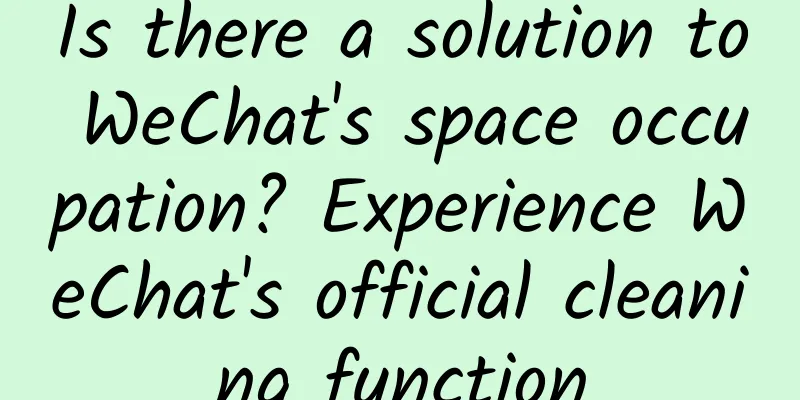Can the ketogenic diet "starve" cancer cells? The list of scientific rumors in October 2024

|
1. As long as you don’t have a headache or feel dizzy, high blood pressure is not serious? Rumor: If you don’t feel headache or dizziness, and your blood pressure is a little high, it’s no big deal and no treatment is needed. The truth: This is a dangerous misunderstanding. Hypertension is often called a "silent killer" because it often has no obvious symptoms in the early stages. Many people may already have severe hypertension even if they do not feel headaches or dizziness. Studies have found that only about 13.6% to 24% of hypertensive patients experience headaches, and only about 7.4% to 14.2% experience dizziness. Long-term high blood pressure can cause irreversible damage to important organs such as the heart, kidneys, and eyes, and may even cause life-threatening diseases such as myocardial infarction and stroke. Therefore, the severity of high blood pressure cannot be judged solely by the presence or absence of symptoms such as "headache" and "dizziness". Regularly monitoring blood pressure, following doctor's orders, rational use of medication, and a healthy lifestyle are the keys to preventing and controlling high blood pressure. Source: Science Refutes Rumors 2. Is it harmful to children’s eyes to use drugs to dilate their pupils for eye examination? Rumor: "All medicines are poisonous", mydriatic drugs can be harmful to children's eyes, so don't use them if possible. The truth: This statement is not accurate. The correct use of mydriatic agents will not harm the eyes, and will make the fitting degree more accurate. Mydriatic optometry is to eliminate the impact of pseudomyopia. If myopia glasses are fitted without formal mydriatic optometry, the lens degree will deviate greatly from the child's actual degree. In this way, the child will definitely feel uncomfortable wearing glasses, and it may even promote the development of myopia. Therefore, it is necessary to use mydriatic agents under the guidance of a professional ophthalmologist. When a child has poor eyesight, it is recommended to go to a regular hospital for formal mydriatic optometry before fitting glasses. It should be reminded that contraindications must be excluded when using mydriatic agents, and there are certain usage and dosages, and they must be used in accordance with the doctor's orders. Source: Tencent 3. Can wild fruits such as ginkgo nuts grown in roadside green belts be eaten? Rumor: In autumn, many plant fruits will fall from the green belts on the roadside, and you can pick them up and eat them. The truth: It is very risky to do so. First of all, it is not easy for ordinary people to identify poisonous fruits. Although many wild fruits look similar to edible fruits, they may actually be poisonous. For example, the fruit of the horse chestnut tree, the horse chestnut, looks like a chestnut, but contains harmful substances, and ingestion may cause poisoning. The tung oil fruit looks like a walnut, but its kernel is poisonous, and ingestion may cause nausea, vomiting, and even heart paralysis. In addition, the common ginkgo fruit may also cause dizziness, vomiting and other poisoning symptoms if eaten improperly. To ensure safety, it is recommended that everyone buys inspected fruits in regular markets and avoids picking and eating wild fruits of unknown origin to avoid endangering health. Source: People's Daily Health Client 4.Do ear creases indicate the risk of coronary heart disease? Rumor: People with diagonal creases on their earlobes, coronal grooves on their earlobes, and wrinkles on their earlobes are believed to have coronary heart disease. The truth: "Ear (earlobe) creases" cannot be used as a symptom to predict coronary heart disease. Although a study in 1973 first proposed that "Frank's sign" (earlobe creases) may be associated with coronary heart disease, this study had a small sample size, lacked a control group, and had insufficient scientific basis. Subsequent studies have not clearly proved that there is an inevitable connection between earlobe creases and coronary heart disease. Earlobe creases may simply be the result of skin aging or long-term compression, especially in the elderly. Real risk factors for coronary heart disease include high blood pressure, diabetes, hyperlipidemia, smoking, obesity, family history, etc. Instead of focusing on ear creases, it is recommended to pay more attention to these known risk factors and manage them in a timely manner. If symptoms such as precordial pain and palpitations occur, you should seek medical attention in time. Source: People's Daily Health Client 5. Can the ketogenic diet “starve” cancer cells and help fight cancer? Myth: New research suggests that the ketogenic diet not only helps you lose weight, but it can also starve cancer cells and stop tumor growth. The truth: Don't do this. The ketogenic diet refers to a diet that is low in carbohydrates, high in fat, and moderate in protein, while controlling total calorie intake, and requires the guidance of a doctor. The so-called "ketogenic diet" circulating on the Internet is often simplified to "not eating staple foods", which has many hidden dangers. Although studies have found in mouse models that a ketogenic diet combined with a certain anti-cancer drug can inhibit pancreatic cancer cells, this is an animal experiment and is far from being used in clinical practice. Therefore, it is misleading to simply think that a ketogenic diet can "starve" cancer cells. More importantly, the treatment of cancer is complex and cannot rely on a single diet. In addition, a long-term ketogenic diet may also have negative effects on health, including kidney burden, ketoacidosis, and nutritional imbalance. Don't blindly pursue unproven treatments. Scientific and reasonable anti-cancer methods still require the guidance of professional doctors. Source: Science Refutes Rumors 6. Can drinking vinegar soften blood vessels and prevent cardiovascular diseases? Rumor: Vinegar is an acidic substance that can dissolve fat and calcium in blood vessels. Drinking vinegar regularly can soften blood vessels. The truth: This statement is not scientific. First of all, the vinegar you drink will not enter the blood vessels directly, and the human body has a perfect acid-base balance regulation mechanism. The acidic or alkaline substances in the diet will not significantly change the internal environment, let alone dissolve the fat and calcium in the blood vessels. In addition, the main cause of arteriosclerosis is the formation of intravascular plaques. These plaques are composed of lipids, inflammatory cells and other factors. Drinking vinegar cannot "soften" these plaques at all. More importantly, drinking too much vinegar may be detrimental to your health. The strong acidity of vinegar may damage teeth, esophagus and gastric mucosa, and even cause gastritis or gastric ulcers. The real way to prevent cardiovascular disease is to have a balanced diet, reduce the intake of high-fat and high-salt foods, maintain moderate exercise, quit smoking and limit alcohol, rather than relying on folk remedies such as drinking vinegar. To protect vascular health, developing a healthy lifestyle is the fundamental way. Source: Science Refutes Rumors About the Science Rumors List Released by the China Association for Science and Technology, the list is reviewed by experts every month. Based on criteria such as timeliness and harmfulness, hot rumors are selected for special interpretation and pushed across the entire network. Jointly published: Scientific rumor-busting platform, China Internet Joint Rumor-busting Platform, "Study to Strengthen the Country" learning platform Supported platforms: Weibo rumor refutation, Toutiao rumor refutation, Tencent Jiuzhen, NetEase Health, Toutiao Health, Baidu Knows, Douyin Scientific rumor debunking: Sponsored by the China Association for Science and Technology, the National Health Commission, the Ministry of Emergency Management, the State Administration for Market Regulation and other ministries and commissions, guided by the Central Cyberspace Affairs Commission, and jointly created by national societies, authoritative media, social organizations and scientific and technological workers, it aims to effectively improve the dissemination, guidance and influence of rumor debunking information, so that rumors can stop at the wise and let science outrun rumors. List of review experts (In order of the number of strokes of surname) Song Shuang, Associate Researcher, Institute of Nutrition and Health, Chinese Center for Disease Control and Prevention Chen Rui, Associate Professor, Institute of Communication Psychology, School of Journalism, Communication University of China Jia Changkai, deputy chief physician, Xiamen Eye Center, Xiamen University Gu Lei, Associate Professor, School of Life Sciences, Capital Normal University Tang Qin Director of the Science Popularization Department of the Chinese Medical Association National Health Science Popularization Expert This article is produced by "Science Facts" (ID: Science_Facts). Please indicate the source when reprinting. |
<<: Southerners please stay away, northerners please come and guess what fruit this is?
>>: Are there natural disasters in the universe? The Sun: Look at me, I'm awesome!
Recommend
Tesla's logic and troubles in moving eastward: There are still three major problems to be solved in building a factory
The rumor was eventually debunked in the clarific...
Under the epidemic, "cloud tomb sweeping" has become popular during the Qingming Festival, but don't let "ranking" hurt the pure filial piety
Wang Zhongxuan liked to bray like a donkey. After...
There are 4 million radio sources, and astronomers can’t handle it all. They ask your computer for help in finding black holes!
Scientists are seeking the public's help in f...
Can these "artificially synthesized meats" that have already appeared on the table really replace natural meat? The truth...
In the past few decades, as the global population...
How can domestic brands market themselves out of the circle?
In recent years, with the development of the time...
How to get new users? The method of attracting new customers is for old customers to bring in new ones!
How to acquire new users is the core topic in the...
Why do we put small stones in sugar-roasted chestnuts? Can bright chestnuts cause cancer? The truth is…
Expert of this article: Pa Lize, chief physician ...
8 trends in brand IP marketing in 2020
Looking back at 2019, various popular IP content ...
Hiss! Burned by the hot pack again? We did an experiment to reveal the truth about the burns caused by the hot pack!
Every winter, we always see a lot of news about p...
It’s hard to get a shot to lose 20 pounds without doing anything! Is the “most powerful weight loss drug in history” recommended by Musk suitable for you?
Recently, a "magic drug" for weight los...
Automatically detect friends and modify notification ringtones. These two tools make your WeChat more useful!
When it comes to using WeChat, there have always ...
User retention strategy for product operation!
From the user's perspective, each product act...
In 5 days, WeChat will ban this behavior
As a "cosmic center", WeChat has always...
Community operation methodology: how to gather target users
In early 2015, communities began to become popula...









